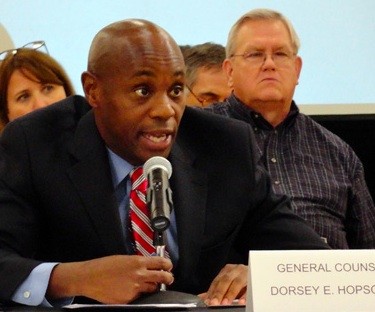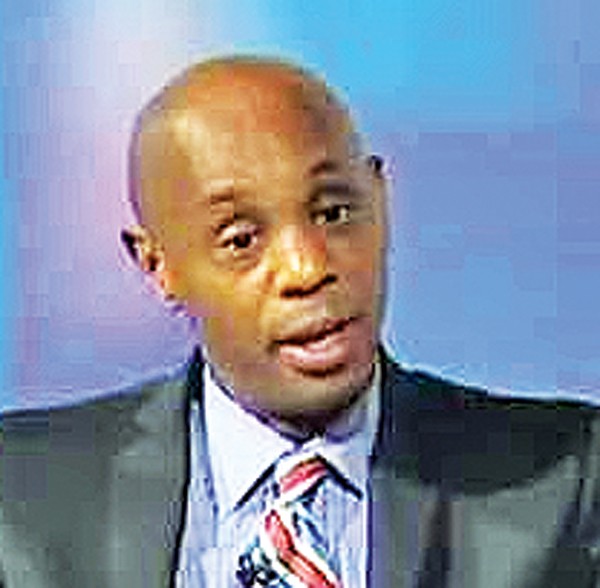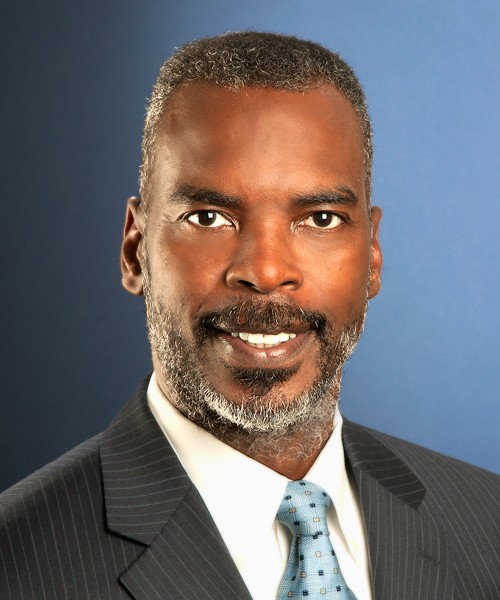Kenneth Crawford is packing his bags. He’s not singing the blues. But he is singing.
“I’m headed to the White House and singing on Saturday with my college choir,” Crawford says. He’s a student at Wiley College in Marshall, Texas, and his choir is headed to the White House in Washington, D.C., for the second time. Crawford is a graduate of the Soulsville Charter School in Memphis, and he is on a full-ride scholarship to Wiley College.
Crawford’s success is one story. But the truth is that there are many success stories emerging from the area’s school music programs. It’s nothing new, but it’s seldom noticed among the naysaying and the never-ending chorus of complaints and arguments about schools. The importance of music education sometimes gets lost, as we celebrate rock and soul music on the marquee. But music education has deep roots in Memphis and remains a vibrant force for good. Music is alive and well in our schools.
It’s time to take note.
“I had two young ladies who started playing trumpet in the 10th grade,” says Ollie Liddell, director of bands at Central High School and previously at East High. “Most people start playing an instrument in the sixth grade. I worked really hard with them, and they were able to get a scholarship their senior year just upon their work. So it’s possible, even at that late age, to get a scholarship in band. But it depends on the child and what level of work ethic they have.”
Liddell knows this not only firsthand but also second-generation.
“My father was the director of bands at Jackson State for almost 20 years,” Liddell says. “He retired in 2011. Without a band scholarship, he wouldn’t have been able to go to school. I didn’t come up from nothing. But he did. My dad went on a band scholarship.”
Liddell himself benefited from music education.
“I would have been able to go to college on an academic scholarship, but I would not have been able to stay on campus,” he says. “Then, midway through my sophomore year, I had a daughter and lost my academic scholarship. Without that band scholarship, I wouldn’t have made it through college.”
This musical path to success is working all over Memphis for lots of otherwise underserved kids.
“If you look at [scholarship] availability, [music] is what’s easiest,” Liddell says. “It takes time, effort, and work. But the money is out there, and band scholarships are readily available. I make a promise to every student: If they come to school and do what they are supposed to do, they can get a scholarship.
“It’s easier to get a band scholarship than a football or basketball scholarship,” Liddell says. “There are more scholarships offered per college program. Football in Division I only offers 70 or 80 scholarships. Basketball? Fifteen. In a band, you can have over 200 kids on scholarship, depending on the school’s program.
“One thing we do at Central is require all seniors to audition for scholarships,” Liddell says. “We set a goal. I did the same at East. Many of them are receiving a college education based on band scholarships.”
Historically, music has been a driving force for Memphis. The blues are the city’s pedigree, its claim to fame. Memphis’ tourism industry is based on its musical history. People have been coming to Beale Street for music long before the NBA came to town. African Americans on their way out of the Delta created a musical culture that still draws visitors from all over the world. Now, music culture is creating opportunities for at-risk and underserved Memphians. In fact, music may be one of the best ways to address the city’s big-picture problems: poverty and a lack of education.
In November, the Stax Music Academy hosted the Berklee City Music Network Conference, which brought together nonprofit music programs like the Stax Music Academy from all over the country. Administrators and teachers got together for networking and brainstorming at the Westin Hotel on Beale Street. The speakers were no strangers to the problems facing America’s cities.
Sandra Bowie is the executive director for arts education at the National Urban Alliance. She developed scholarship paths for underserved kids at New York University’s Tisch School of the Arts before taking her current job, located in Newark, New Jersey. She has been on the education front lines for decades and knows that there are capable, talented kids who can’t afford the next step in attaining the American dream.
“Colleges and universities cost so much money,” Bowie says. “We need programs like this to be connected to the colleges and universities. The child’s role is to find in themselves their own capacity and build that and their discipline. But we don’t have a system for doing that. There are a lot of children who are losing their lives because they are undereducated. They become underemployed and overincarcerated. This is a national crisis.”
Certainly, some aspects of the benefits of music education have been exaggerated: The “Mozart Effect” — making babies smarter by playing them classical music — has been oversold. But serious research abounds on the effects music has on the brain, even after childhood and adolescence and into adulthood.
A 2012 study in the Journal of Neuroscience found that “adults who received formal music instruction as children have more robust brainstem responses to sound than peers who never participated in music lessons. … Our results suggest that neural changes accompanying musical training during childhood are retained in adulthood.”
A 2013 study in Progressive Brain Research confirmed the benefits of music education: “The beneficial effects of musical training are not limited to enhancement of musical skills, but extend to language skills. … Taken as a whole, these findings suggest that musical training can provide an effective developmental educational strategy for all children.”
Cognitive benefits aside, music education has made a tremendous practical difference for many generations of Memphians and continues to provide a path for advancement not only in the private schools and charter academies but in our public schools as well.
“This is a time of high-stakes accountability,” says Dru Davidson, the fine arts adviser to the Shelby County Schools (SCS) system and former chair of arts education for Memphis City Schools (MCS). “We have 100 percent instruction in K through 5 in Shelby County Schools. Every child in a public school in the SCS receives music education. There are 100,000 kids served.”
In fact, it’s law in Tennessee, thanks to Title 49, Chapter 10, Part 6 of the annotated code. Formerly SB 2920, the bill was sponsored in 2008 by Memphis state senators Beverly Marrero and Ophelia Ford and reads: “The course of instruction in all public schools for kindergarten through grade eight (K-8) shall include art and music education to help each student foster creative thinking, spatial learning, discipline, craftsmanship, and the intrinsic rewards of hard work.”
“There’s not much like it at the state level, especially for elementary schools,” Davidson says. “We’re not doing it because it’s the law but because it’s a great idea.”
Not every kid will succeed in college. But those who make it to that level, if only for a while, learn something about how to set goals for themselves. It’s a net positive. The skills of collaboration and self-expression are essential to success at any level.
“Most of these kids are not going to play in orchestras for the rest of their lives,” says Carol Johnson, former superintendent of the Minneapolis, Memphis, and Boston school districts and a panelist at the Berklee City Music Conference. “But the athletes aren’t [going to be playing sports all their lives] either. Here is another pathway for them to learn something that is a lifelong joy.”
Johnson recalls an evening during her Memphis tenure when the benefits of music education revealed themselves to her firsthand.
“We had an orchestra performance of Memphis City Schools students at the Cannon Center. There was one child who didn’t have a ride home. This student was a ninth-grader from Frayser. His parents had not come to hear him perform. He played the cello. I said to him, ‘How did you get interested in the cello?’ He said, ‘I never knew what the cello was. I never knew about the orchestra. When I went to high school, one of my music teachers asked if I’d like to learn the cello. I just said yes. I can’t believe it. Here I am playing at the Cannon Center tonight.'”
“So when you think about it, it makes you want to cry. His parents didn’t even come. He didn’t have a ride home. His life chances are pretty difficult to imagine. Nobody in his family had gone to college.
“We need to nurture the talents that people have, to engage them in positive ways. If we fail to do so, it’s a lost opportunity. It’s lost not in just the musical sense, but in whether they will be useful participants in the democracy. They are getting a college opportunity and getting doors opened to them. This kid who was at the Cannon Center: What is the likelihood, growing up in Frayser, that he attends anything at the Cannon Center? It’s very low. His parents didn’t have discretionary income. They were intermittently homeless. What is it that keeps him grounded? He was very proud of playing the cello, that sense of accomplishment carries over.”
But music education offers more than anecdotal benefits. It’s one of the best values the district — and the city — has in terms of return on investment.
“MCS students earned $6.1 million in scholarships for music,” Davidson says of the last available annual figures for the now-defunct district. “It’s about the return on investment — allocating the budget, getting instruments that work, maintaining them. It’s a lot less money spent than the scholarships [bring in].
“The message is to develop 21st-century skills,” Davidson says. “Employers want people who are creative, innovative, and collaborative. We corner the market in creative skills. When kids are engaged in that, they will be one of the valuable people that employers want.”
Investment measures aside, Davidson is proud of the musical legacy of MCS and the work being done under SCS.
“Melrose is currently in a renaissance,” he says. “They are doing amazing work. Whitehaven has one of the top marching show bands in the country.”
Overton High School is the district’s official Creative and Performing Arts Academy. Principal Brett Lawson is himself a beneficiary of musical education. He sees music and arts instruction as essential pedagogical tools.
“When you study something that deeply, it teaches you how to learn,” he says. “You become not just a musician but someone who can learn to do something really well. That’s not automatic. You don’t come out of the womb knowing how to play the French horn. You have to work at it. You are hardwired to walk and talk, but the other things that people have to do to succeed in this world require effort. As a matter of fact, most things require effort. Our students are learning a skill at a very deep level. That’s what I’m looking for, and it translates to scholarships later on.”
In 2011, 26 students from Overton High School were offered $591,810 in music and art scholarships. Sixty-four students were offered academic scholarships totalling more than $2.2 million. The University of Memphis, for example, offered more than $1.2 million in music performance scholarships to more than 100 students last year.
A walk through the Overton campus is like getting baptized in the river. It’s profoundly inspiring to watch kids play together as an orchestra. We’re bombarded with musical noise all the time, but the sound of people playing together in real time and in real space has an immediate connection to our brains. To watch and listen to a performance is to be part of something.
And performing together is what Memphians need to learn to do more often.
“There’s a special thing that’s being put out from this campus,” says Justin Merrick, artistic and operations director for the Stax Music Academy. “These are music ambassadors who speak strongly and have a strong connection. They will be financial leaders as well and will be able to help build the communities of music for tomorrow.”
Memphis has problems, and we like to talk about them. In fact, problem analysis might be our civic pastime. But focusing on the negative eats away at us as people and as Memphians. This is especially true when it comes to discussing education — so much so that it’s sometimes hard for Memphians to imagine something wonderful coming from their schools. But a closer look — and a listen — might convince you otherwise.
Correction: There was an error in the print edition. The number of students receiving music scholarships is not greater than those receiving athletic scholarships. The point is that a typical band offers more scholarships than any particular sport or team at a university. We regret the error. — JB







